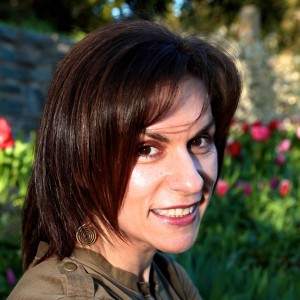I am a survivor of many things. I am a trauma survivor. I have survived multiple adverse childhood experiences, suicide attempts, psychiatric disability, addictions, profound losses. I was born to a single mother, a creative artist with a delightful spirit who was diagnosed with schizophrenia, whose care I was removed from by the age of five. She cycled in and out of state hospitals, wandering the streets, hearing voices. She died by a passive suicide at the age of 46, a life that was lost far too soon.
My father, a brilliant man with an encyclopedic memory, also struggled with bipolar disorder, and died suddenly at age 63, another devastating blow to my family. I witnessed firsthand how poor quality treatment, discrimination, and lack of hope led to both of my parents’ untimely deaths. As we all know, people with serious mental health diagnoses die earlier than the general population, and my parents sadly fell into that category.
I always say that I was born into stigma. My family freely admitted that they had pressured my mother to abort me, not just because she was a single mother in 1975, but because of her psychiatric diagnosis. Get rid of it. Get rid of this thing called “mental illness.” If my mom was not a more compliant sort of mental patient, I wouldn’t be here today. While I was once compulsively suicidal, today I am thankful for her noncompliance.
All my life, the doctors said that I would likely end up like my parents, a sort of genetically-based fatalism. I believed them, and “patient” became my primary identity. As an adolescent, I struggled from the devastating effects of all I had experienced in my short life. I entered mental health treatment for depression, and was traumatized by systems that did not seek to understand and support me, but to blame me, label me, and heavily medicate me.
Sometimes I wonder which was more traumatic: my turbulent 0-5 years, or five years of scary experiences in incompetent treatment settings? I witnessed many instances of brutality of staff against minors; I was warehoused in institutions for months on end; heavily medicated; given no less than five psychiatric diagnoses; denied a meaningful education; denied dreams; denied a real life. Being treated like a mental patient is inherently damaging to the human spirit.
I almost gave up hope at the tender age of eighteen. My adulthood began by rotting in a decrepit, filthy group home, instead of with my loved ones in my community, because the treatment team said “I belonged there” for my own good. I was intensely suicidal in that awful place. I managed to convince my family to let me leave; they agreed to defy doctor’s orders. I began to complete the high school education I had missed while institutionalized. That was the small beginning of hope returning to my life.
When I was in my mid twenties, I heard for the first time about the concept of “recovery” in mental health. It began as a radical notion that a mental illness diagnosis need not mean that you become a permanent patient. People can and do recover from even the most severe conditions and diagnoses. I learned about an international movement of survivors and ex-patients, a civil rights movement that existed on the margins of mainstream attention, and I joined up. This group of people has worked tirelessly for over four decades to stop the perpetuation of harmful, traumatic practices and attitudes in mental health.
We may be one of the last unacknowledged civil rights movements. At the same time, we are creating our own parallel networks, efforts to create non-traumatizing, voluntary, respectful, community-based services and supports for people in distress and crisis. Our approach emphasizes the the importance of people retaining dignity and the right to self-determination, a central value of the cross-disability rights movement.
The first step in my healing was to tell my own story as a survivor and an advocate, without shame. Profound healing came for me when I finally felt safe to examine and begin to resolve the traumatic and violent experiences of my own childhood. I reclaimed my dignity through becoming a social justice advocate and lending my love and energy to the causes I most deeply believe in.
I’m obsessed with figuring out how to transform the way we as a society relate to and support people in crisis, people who are suicidal, people who hear voices, people who are homeless, people who are marginalized, people who are systemically discriminated against, people who are witnesses to violence, and survivors of abuse. People are not “broken,” the system is. How can we do away with these antiquated “systems of care” and create innovative networks of support that are above all hopeful, flexible, creative and collaborative, and person- and family-centered?
Today, I am a parent, and the cycle of suffering and intergenerational trauma stops with me. I feel blessed that I was able to take back my life, and did not have to suffer the tragic fate of my own parents.
I’m dedicated to making this earth a safer place to be human.
Leah Harris, M.A. Twitter Facebook Website Li








Leave A Comment